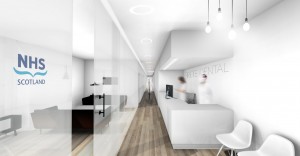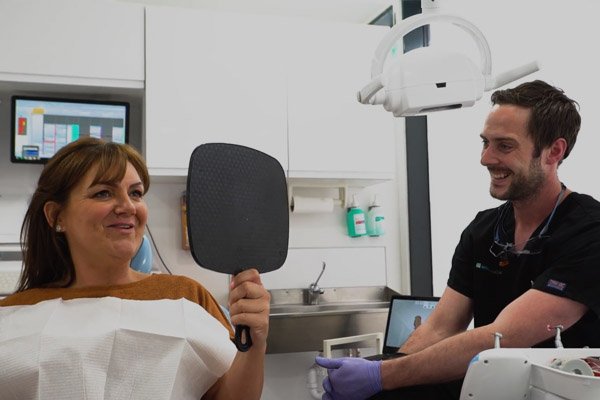Archive for the ‘NHS Dentistry’ Category
Childsmile Scheme Saves Scotland £5M A Year
Tuesday, July 7th, 2015
 Recent data has shown that the Scottish Childsmile programme saves nearly £5 million a year in treatments costs. The statement was made by Scotland’s public health minister Maureen Watt. She explained that the savings have been made due to a decrease in the amount of fillings, general anaesthetics and extractions required.
Recent data has shown that the Scottish Childsmile programme saves nearly £5 million a year in treatments costs. The statement was made by Scotland’s public health minister Maureen Watt. She explained that the savings have been made due to a decrease in the amount of fillings, general anaesthetics and extractions required.
What Is The Childsmile Scheme?
Childsmile is a national programme that was created in Scotland to improve the oral health of children and improve access to dental services. The scheme was created in 2008 and works in partnership with various schools, nurseries and dental practices.
How Has Childsmile Helped Improve Children’s Dental Health In Scotland?
The Childmsile programme has not only helped save millions of pounds but it has also helped improve the dental health of children in Scotland. Since the scheme was introduced, Scotland has seen a decrease in the number of primary one children with ‘obvious decay experience’ from 46% to 32%. 92% of Scottish children are also now registered to a NHS dentist. The results of the scheme have shown what a focus on prevention and education can achieve.
NHS Childsmile Programme and Brite Dental
Brite Dental is happy to be a part of Scotland’s Childsmile programme. As part of the Childsmile scheme, children receive free toothbrushes, toothpaste and two fluoride varnish applications per year. Children attending nursery and those who attend a primary school in a deprived area are also offered daily supervised brushing. A key focus of the programme is to prevent the development of dental decay which is important to avoid the need for root canal treatment. Brite Dental are proud to help children learn about their dental health and ways to improve it.
Brite Dental is an NHS and cosmetic dentistry dental practice. To find out more, or to register, contact us today.
Your Dental Health During Pregnancy
Thursday, June 11th, 2015
 Pregnancy can lead to dental problems in women, including an increased risk of tooth decay and an increased chance of developing gingivitis (gum disease). These problems can in turn affect your delivery, with studies showing that as many as 18 out of every 100 premature births may be triggered by gum disease.
Pregnancy can lead to dental problems in women, including an increased risk of tooth decay and an increased chance of developing gingivitis (gum disease). These problems can in turn affect your delivery, with studies showing that as many as 18 out of every 100 premature births may be triggered by gum disease.
It is always important to take proper care of your teeth and gums. However, if you are pregnant it is even more essential that you do all you can to avoid gum disease and other dental problems. Your baby’s teeth and mouth start to develop in the first weeks of pregnancy so by taking good care of your own oral health you will, in turn, help support the correct development of your baby’s dental health.
You (and Your Baby) Are What You Eat
Cravings
You may find that your experience unusual food cravings (or avoidance) during your pregnancy. It may also be the case that you have increased cravings for sugary foods. Snacking on sugary foods too often is bad for your teeth and can lead to an increased chance of tooth decay. You should try to snack on low-sugar alternatives where possible. However if you are finding it difficult to avoid your cravings then you should always rinse your mouth out with milk or water after consuming sugary food and drinks to stop plaque building up on your teeth.
Calcium & Vitamin D
During your pregnancy you will need an increased amount of certain vitamins. Calcium in particular is important not only to help your developing baby but also to protect your own bone mass. Vitamin D is important as well as it help the body utilise calcium. You can find calcium in yoghurt, milk and cheese and Vitamin D in eggs, fatty fish including salmon and margarine. During your pregnancy you should look to increase the amounts of these foods you are consuming.
Gum Disease During Pregnancy
During your pregnancy your body will have increased hormone levels which can make your gums more vulnerable to plaque. In fact, 40% of women will develop gum disease as some point in their pregnancy.
Research has also indicated a connection between gum disease and premature births and low birth weight. If your baby is born prematurely they could have problems with their hearing and eyesight and are at risk of health conditions such as cerebral palsy. If you experience soreness, swelling, pregnancy tumours (growths between your teeth) or bleeding gums you may be showing the first signs of gum disease It is imperative that if you experience any of these symptoms that you visit your dentist.
Morning Sickness and Your Teeth
It is often the case that hormones produced during pregnancy will soften the ring of muscle that keeps your food inside your stomach. As a result, you may experience morning sickness or gastric reflux during your pregnancy which will lead to your teeth becoming coated with stomach acids. If this happens repeatedly during your pregnancy you can damage your tooth enamel which can lead to an increased chance of tooth decay. If tooth decay is left untreated you may require root canal treatment.
To ensure your teeth are not affected by morning sickness you should rinse your mouth out thoroughly with tap water and follow up with a fluoridated mouthwash. Whilst it will be tempting to brush your teeth straight away you should try and wait at least an hour as your stomach acids weaken your teeth and brushing straight away can damage your teeth.
It may also be the case that brushing your teeth is affecting your gag reflex. If you are experiencing this problem then you can try using a toothbrush with a smaller head, try distractions whilst brushing including listening to music, or simply slowing down your brushing action.
Brite Dental and Your Pregnancy
Pregnancy can be a difficult time for your health in a variety of ways. If you are trying to become pregnant then you should consider your current dental hygiene routine. You are less likely to develop dental problems during your pregnancy if you already maintain a good oral hygiene routine. Correct dental treatment during pregnancy was found in one study to reduce the risk of premature birth by over 80 percent.
Dental care is provided for free by the NHS during your pregnancy and for one year after your due date. You simply need to fill out a FW8 form to apply for a maternity exemption certificate (MatEx). To find out more you can contact Brite Dental NHS Dentist and Cosmetic Dentistry in Scotland.
New Dental Practice for the Paisley Community!
Friday, August 8th, 2014
 Are you looking for a dentist in Paisley? Well, you have come to the right place because our clinical care team at Brite Dental Paisley can offer you a number of NHS and cosmetic dentistry treatments including teeth whitening, crowns, veneers, orthodontics, dental implants and more.
Are you looking for a dentist in Paisley? Well, you have come to the right place because our clinical care team at Brite Dental Paisley can offer you a number of NHS and cosmetic dentistry treatments including teeth whitening, crowns, veneers, orthodontics, dental implants and more.
Soon we will be able to offer you even better dental facilities and care, because we will be moving to the new and highly advanced dental clinic in Paisley.
We are absolutely delighted to announce that our team has secured a new location for the new Brite Dental practice. The new Brite Dental building will be located on 27 Neilston Road – 4-6 Barterholm Road. It will be a modern high technology practice with 10 dental chairs offering greater access to all NHS and cosmetic dentistry patients in Paisley and surrounding communities in 2015.
If you would like to find out more contact our dental practice in Paisley on 0141 889 2012 or 0141 889 3165.

